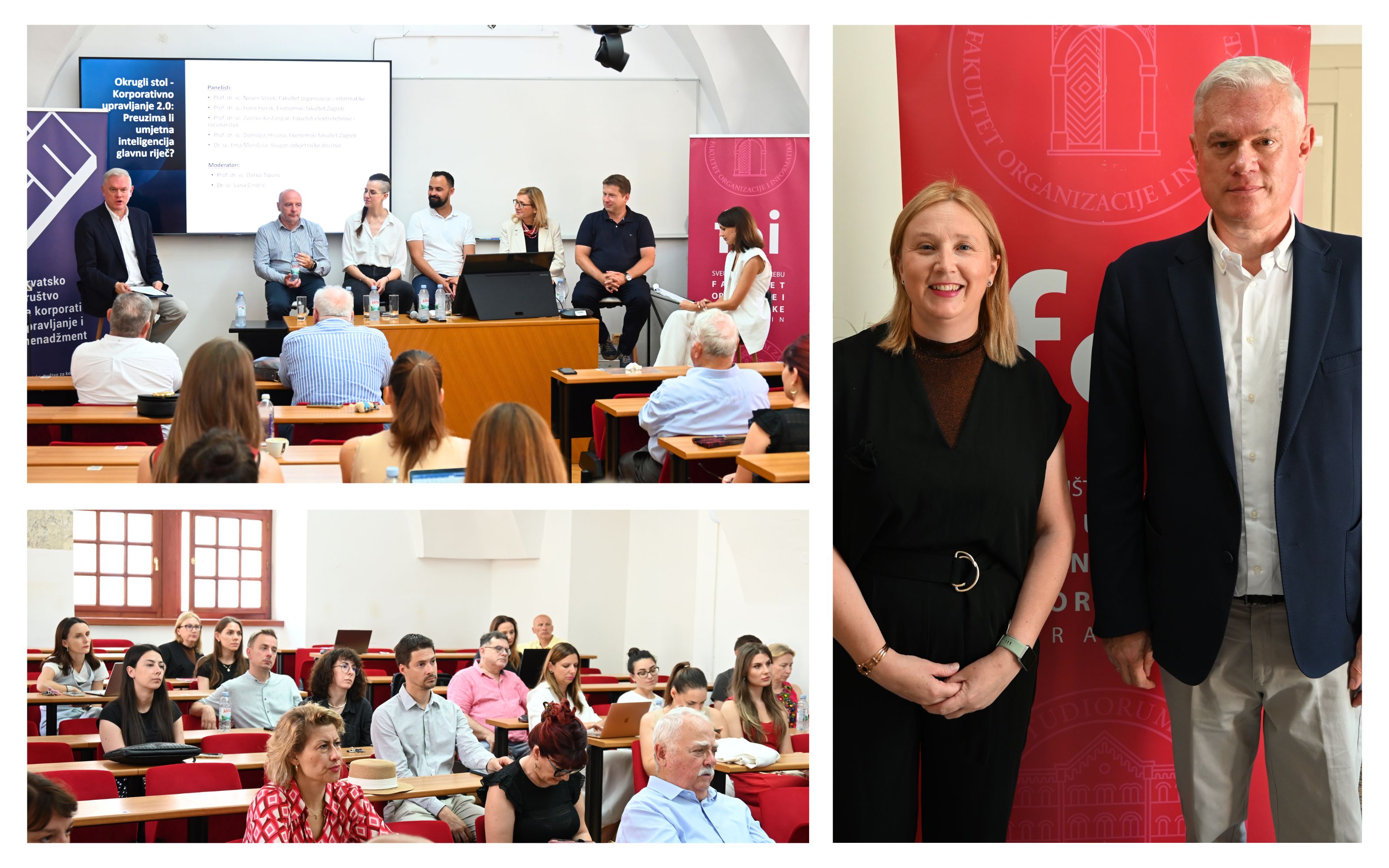In a time when artificial intelligence (AI) is increasingly influencing business decision-making, risk management, data analysis, and corporate oversight, important questions have emerged about the role and limitations of AI in the field of corporate governance. The roundtable brought together leading experts in technology, law, and management to explore whether AI is changing the very nature of corporate decision-making – and to what extent it could replace human judgment.
The program began with an opening address by Prof. Darko Tipurić, PhD, President of the Croatian Society for Corporate Governance and Management, who emphasized the importance of timely reflection on how emerging technologies are reshaping decision-making structures and accountability. This was followed by a keynote lecture from Prof. Marina Klačmer Čalopa, PhD, Dean of the Faculty of Organization and Informatics and a member of the Society’s Academic Council, who provided an overview of key trends in the application of AI in modern management.
The panel discussion featured contributions from:
Prof. Neven Vrček, PhD (Faculty of Organization and Informatics),
Prof. Hana Horak, PhD (Faculty of Economics and Business, University of Zagreb),
Prof. Zvonko Kostanjčar, PhD (Faculty of Electrical Engineering and Computing),
Prof. Domagoj Hruška, PhD (Faculty of Economics and Business), and
Ema Menđušić Škugor, PhD (law firm Divjak, Topić, Bahtijarević & Krka).
The discussion was moderated by Prof. Darko Tipurić, PhD, and Lana Cindrić, PhD.
Participants explored concrete examples of AI applications in decision-making processes, such as data analytics, regulatory compliance monitoring, risk management, performance evaluation, and real-time reporting. The discussion highlighted the benefits of AI, including faster and more objective decision-making, improved processing of large datasets, elimination of subjective errors, and significant time and resource savings.
However, numerous challenges and dilemmas were also raised, including dependency on algorithms, lack of transparency in AI systems, erosion of human accountability, and various legal and security concerns. The panel examined whether AI could eventually take on executive functions or whether its future role is more realistically that of an advisor. Additionally, the idea of introducing new models, such as hybrid governance structures where AI acts as a “virtual observer” in decision-making bodies, was considered.
In conclusion, the panel emphasized the need to develop new models of responsibility, transparency, and collaboration between humans and technology. Special emphasis was placed on the importance of educating managers, board members, and policymakers to prepare for this digital transformation. As discussed at the event, the future of corporate governance is increasingly moving toward a symbiosis between human intuition and experience on one side, and the analytical power of AI on the other.
The key question that remains: Are we still in control of artificial intelligence – or is it beginning to control us?



